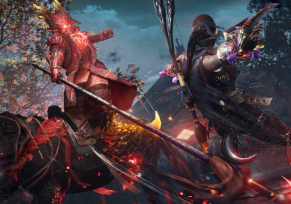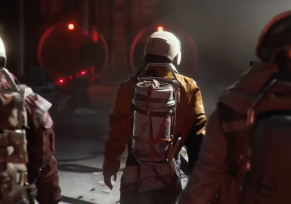At first glance, that headline may seem a little...off. After all, Assassin's Creed is one of the more celebrated franchises of gaming today, and by the third time around (which just so happens to be the charm), the game was still receiving high amounts of praise from the critics. Most versions of the game stand at a respectable score in the mid-80s from aggregate score site Metacritic. But look closer, and you'll notice a wide gap between the critics' scores and players' scores, which average closer to the mid-to-high 60s. One gamer who similarly found the game displeasing took to Reddit to voice his concerns, and who should answer his call? Surprise surprise, one of the game's developers. Well, allegedly.
PreludesAndNocturnes seemingly appeared out of thin air to talk about how development of the game was, "a mindfuck of an experience" thanks to an obscene amount of pressure. If you recall, there was a lot of anticipation surrounding the game, and thanks to the previous adventures of rockstar assassins Ezio and Altair, the game had a lot to live up to in just about every way, shape, and form: gameplay, story, graphics, etc.
The simplest answer of what happened according to the staffer? It came down to "ridiculously unrealistic expectations and constantly tacked on features by producers / the creative team, it became literally impossible to get everything done with just Ubi Montreal."
A massive game requires a massive undertaking, meaning a lot of people, but to spout off a terrible cliche, "too many cooks spoil the broth," and that seems evident with Assassin's Creed III, not to mention the fact that several different Ubisoft teams were all working on the game simultaneously, and spread across different spots on the globe. By its own admission, Ubisoft has 29 studios in 19 countries, which isn't a bad thing until you try to get the workers to communicate with each other, some of whom are always coming and going.
"In order to get everything in the design doc completed in time for the annual release (ugh!), team size was constantly fluctuating. The game was worked on by large majority of the Montreal team, as well as Ubi Quebec, Ubi Annecy, Ubi Bucharest, and Ubi Singapore. Between 500-600 people touched the game before it's release. Contrast that with teams like Naughty Dog or Sony Santa Monica, who operate with 80-100 (maybe 200 during crunch). The coordination of resources between all of these teams separated by thousands of miles and differing time zones was a damn joke, and at the same time studio resources were constantly stolen for work on Watchdogs and Far Cry 3 (AC4, Splinter Cell and Rayman tended to be a little more isolated for the most part though)."
With work segmented and delgated to so many different teams, bottom rung workers were ignorant of the game's big picture, making for some sloppy pieces that had to be forced together.
"Dissemination of information between individual employees was also pretty bad. A disturbingly large portion of team members had no idea about the majority of the Homestead, Caravan, and assassin crew side missions. There was basically so much content that even approaching release, plenty of grunt workers like myself on the ground were finding new features they didn't know existed that needed more attention. Upon completing the story, there's an origami-crane node collecting mini game that unlocks that I've NEVER seen covered or mentioned in any gaming blogs, reviews, or fan vids. Most of us didn't even know it existed. That's how random and disjointed the design was. Everything was documented on the company wiki of course. The impenetrably deep, confused, several-thousand page wiki."
If you ever wondered why certain parts of the game felt like a last minute addition, that just shows you're perceptive, because that's what happened, as Preludes further described:
"Stuff like the homestead economy, weapon crafting, hunting, board games, and the late-game set pieces were all heavily ignored til the very end of development, and no time was given to polish them or make them cohesive. Getting 100% went from something fun for the diehard fans, to a herculean task of tedium and dumb-luck. A large action set piece near the Haytham boss fight was entirely cut ~2 weeks before we went gold. On top of that, some vital cutscenes anims and audio weren't implemented until right befoe gold. So the (massive and disjointed) test teams were often sitting on their laurels waiting for more content while the thousands of issues they had already flagged were marked as "Won't Fix" due to time constraints."
Even with the game complete, the bad habits continued with the game's DLC.
"Also, the Tyranny of Washington DLC was completely in Quebec's court, and no one outside of Quebec city knew what was going on with it or how it would be integrated/implemented until the last possible second. There was also some ocnfusion on the implementation of the PS3 exclusive missions for quite a while. It's a shame, because I thought Tyranny of Washington was the best work we did. I almost wish it was released as a standalone like Infamous Festival of Blood, or Red Dead Redemption Undead Nightmare."
Despite the downfalls, it wasn't all bad. As Prelude notes, "I do think that AC3 was a decent product. I think it had some missteps, but I think it has some strengths too. The Haytham is actually a Templar reveal is one of my favorite uses of dramatic twists in the medium to date. And I do think that Connor was a good protagonist, who only suffered from some great character development that hit the cutting room floor."








